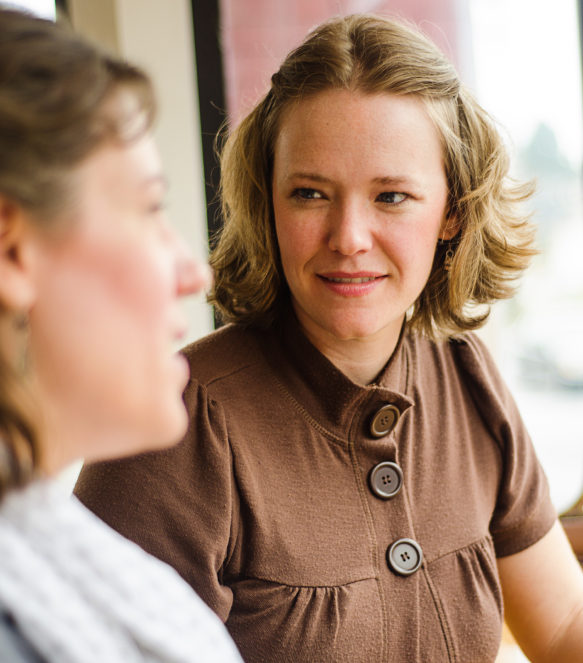5 Tips to Support Your Friend Going Through a Divorce

Eight years. That’s the average length of a first marriage that ends in divorce.
The actual statistics are that 41% of first marriages, 60% of second marriages, and 73% of third marriages end in divorce. So, chances are, you have co-workers, friends, or family members going through a divorce.
How to Be Supportive to Someone Going Through Divorce
Divorce is a traumatic time for people, and it is natural to turn to friends for support.
As the friend, you may already know providing that support can be overwhelming emotionally, sometimes very time-consuming, and even frustrating for you.
1. Avoid Giving Advice
One way to help is to minimize or avoid giving tangible advice. Most individuals who are in deep distress are actually not looking for solutions, but rather to vent and to be heard. Listen carefully to your friend. When Mary says, “How am I going to have enough money when I am on my own?,” you might consider reflecting her worry by saying something like: “It must be scary to worry about how to make ends meet.”
Offering suggestions like getting a job, or asking for more money, and other well-intentioned problem-solving ideas can promote despair rather than support. And you’ll likely hear “yes-but” detailed reasons about why each of those suggestions will not work.
On the other hand, you might connect her with someone you know who has “made it” financially after a divorce and whom you know would be willing to share her story and serve as an inspiration.
2. Be Inclusive
The transition to being a full time spouse and parent to sharing time is huge. Your friend may be very lonely and anxious when the children are away. Arrange some friend time and include her as often as possible in social gatherings.
One comment I hear repeatedly is “It’s a couples world,” and it does seem that way. Inviting your friend to a movie or dinner date with several other couples lets her know that she is still a valued friend and an important person as an individual, not just as part of a couple.
3. Set Boundaries
Maintaining a relationship with both parties of a divorce can be dicey. Not being a messenger or mediator is essential. Be clear that you intend to be supportive to both of your friends. If your friend wants you to choose, then be honest and let him know that you care about both people, and you are not going to judge or choose sides. Then it’s up to your friend. He may choose his anger (at his wife) over his friendship with you.
This is particularly evident when people or family host a gathering and are asked about who is invited, implying that if they invited the other party in the divorce, “Then I’m not coming.” The best response is to explain that each invitee needs to make their own decision, and that you do not want to choose among friends.
4. When Friends Are Also Relatives
For many people friends are relatives. The divorce may affect a sister- or brother-in-law who has been in your life for years, often attending your school or even working at the same place you do. It is very hard to be forced to choose between family and friends.
The adage that “I am not divorcing you” is wise, and at the same time it is hard to pay attention to everyone’s feelings.
The first step in maintaining both relationships is not to collude or agree with either party’s “story” about why the marriage is ending. Remind them that you are not taking sides, and that you do not want to be part of the collateral “damage.”
If there are children, they need to feel safe to be with their cousins, grandparents, and other family members on both sides without worrying that the other parent is not allowed to be present.
5. Support Systems
Finally, it is helpful to understand how your friend is connected with support systems. Is she seeing a therapist? Is he getting good information from a mediator or attorney regarding navigating the divorce process? Is she aware of the peer support groups in town such as Neutral Ground (here in Rochester NY)? Does he have a financial planner or tax accountant to help with finances? Has she read any books about divorce?
Understanding her support team will help you defer to their expertise when you talk. As her friend, your main role is to be as good listener as you can be.
